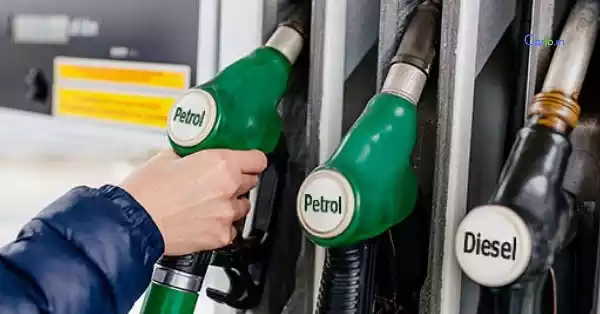New Delhi: The government declared on Monday that it would raise the excise taxes on petrol and diesel by Rs. 2 each, effective from Tuesday. However, as oil prices have dropped on the international market, the retail prices of these fuels will not rise.
Oil refining and marketing firms like Indian Oil and Bharat Petroleum will see a decrease in production costs and a rise in their retail margins as a result of the reduced crude oil prices. This will allow the government to increase excise tax income without putting further strain on consumers.
“The PSU Oil Marketing Companies have informed that there will be no increase in retail prices of petrol and diesel, subsequent to the increase effected in Excise Duty Rates today,” the Ministry of Petroleum and Natural Gas posted on X.
According to the decision, the excise duty on petrol has been raised to Rs 13 per litre, while on diesel, it has been raised to Rs 10.
With the benchmark Brent crude dropping to $63 a barrel, the lowest since April 2021, and the US West Texas Intermediate crude dropping to $59.57, crude oil prices have dropped to a four-year low on the world market. The move is intended to generate more money. Given the decline in oil prices, India, the third-largest importer of crude in the world, stands to benefit.
Oil prices continued to decrease Monday, dropping nearly 4% as the OPEC+ oil cartel voted to boost supply and escalating trade tensions between the US and China sparked concerns about a recession that would reduce demand for crude.
US West Texas Intermediate oil futures fell 3.9%, to $59.57, while Brent futures fell 2.43, or 3.7%, to $63.15 a barrel.
The world’s largest oil exporter, Saudi Arabia, cut the price of crude oil for Asian consumers in May by as much as $2.3 a barrel on Sunday.
The decline in oil prices augurs well for the Indian economy as the country imports around 85 per cent of its crude requirement, and any decline in oil prices leads to a reduction in the country’s import bill. This, in turn, leads to a lowering of the current account deficit (CAD) and strengthening of the rupee.
Apart from strengthening the external balance, a decline in oil prices also leads to lower prices of petrol, diesel and LPG in the domestic market, which eases inflation in the country.
The government has also helped to reduce the country’s oil import bill by allowing the oil companies to buy Russian crude at discounted prices despite Western pressures in the wake of the Ukraine war. The Narendra Modi government has stood firm in maintaining its ties with Russia despite the sanctions against Moscow imposed by the USA and Europe.
Russia has now emerged as the largest supplier of crude oil to India replacing Iraq and Saudi Arabia which occupied the top slot earlier. India has in fact become the largest purchaser of Russia’s seaborne oil which accounted for close to 38 per cent of India’s total oil imports.
You May Like
Trending Searches Today |
Bhubaneswar: Traffic Advisory Released For Rukuna Rathayatra Of Lord Lingaraj



